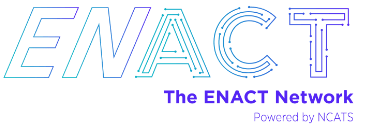
Grand Rounds
05/19/2025
Join us for a compelling session that explores how to sustain real-world data (RWD) research networks through the lens of implementation science. What to expect:
Beyond the Grant: Lessons learned on maintaining momentum and impact when funding is reduced or paused. Implementation Science in Action: A review of key principles essential for keeping Real World Data research networks strong and effective.
CTSA Alignment: Direct focus on addressing goals from the CTSA PAR (specificity) programs to ensure long-term relevance and resilience.
Navigating Change: Insights into how networks can adapt in a constantly shifting research environment. This session is a must for researchers and stakeholders committed to sustaining and growing collaborative research efforts.
Presenter Bio:
Elaine H. Morrato, DrPH, MPH, FISPE, CPH, is Professor and Founding Dean of the Parkinson School of Health Sciences and Public Health at Loyola University Chicago. A nationally recognized leader in translational science and implementation research, Dr. Morrato directs Loyola’s CTSA-supported collaboration with the University of Chicago–Rush Institute for Translational Medicine (ITM). She plays a central administrative role in advancing the goals of the Clinical and Translational Science Awards (CTSA) program, particularly around sustainability and dissemination & implementation (D&I) efforts.
As a core member of ENACT’s Dissemination & Evaluation (D&E) Work Group, Dr. Morrato brings expertise in sustaining research infrastructure and innovation ecosystems. She is a co-author of the recent paper, A National Unmet Needs Assessment for CTSA-Affiliated Electronic Health Record Data Networks: A Customer Discovery Approach (Mora et al., 2024), which explores critical gaps in EHR data networks and highlights strategies for sustainability. Her research also focuses on the application of implementation science to improve health systems and the scalability of real-world data networks.
In addition to her work in sustainability, Dr. Morrato has an extensive body of scholarly research in dissemination and implementation science. She has provided expert guidance on pharmaceutical risk communication and safety surveillance to the U.S. Food and Drug Administration and completed a visiting professorship at the FDA’s Office of Surveillance and Epidemiology, Center for Drug Evaluation and Research. Dr. Morrato is also involved in scaling the NIH I-Corps™ program, ensuring that academic innovations are effectively translated to real-world impact.
04/28/2025
Precision Phenotyping in ENACT for Curated Cohorts of Unexplained Chronic Conditions With advances in AI and increasing computational capabilities, electronic phenotyping is evolving into precision phenotyping -- where multi-modal frameworks define phenotypes in a more personalized manner using electronic health record (EHR) data. The ENACT network supports this shift by providing interoperable informatics infrastructure for distributed learning and algorithm deployment. This presentation explores how precision phenotyping algorithms within ENACT can be applied to curate highly specific research cohorts for complex, unexplained chronic conditions. By integrating algorithmic precision and collaborative infrastructure, this approach offers new avenues for targeted clinical studies and advances in translational research. Presenter: Hossein Estiri, PhD, is an Associate Professor of Medicine at Harvard Medical School and an Investigator at Massachusetts General Hospital, where he leads the Clinical Augmented Intelligence Group (CLAI). He also serves as the Head of AI Research at the Center for AI and Biomedical Informatics of the Learning Healthcare System (CAIBILS) at Mass General Brigham. Dr. Estiri’s research is at the intersection of biomedical informatics, machine learning, and population health, with a particular focus on modeling complex phenotypes from electronic health records (EHRs). His work aims to advance precision medicine by developing computational frameworks that uncover nuanced patterns in clinical data, enabling more accurate phenotyping and improved cohort discovery for translational research and clinical trials.
03/24/2025
The inaugural ENACT Grand Rounds seminar on March 24, 2025, will feature Shyam Visweswaran, MD, PhD, Professor and Vice Chair of Clinical Informatics in the Department of Biomedical Informatics at the University of Pittsburgh, and Olga V. Kravchenko, MS, PhD, Assistant Professor in the Department of Family Medicine at the University of Pittsburgh. Dr. Visweswaran and Dr. Kravchenko will present ENACT’s pioneering postpartum hemorrhage (PPH) study, which exemplifies ENACT’s ability to generate insights from multi-site data, showcasing a stepwise journey from initial hypotheses to advanced predictive modeling. By analyzing data from 22 ENACT sites and over 1.2 million unique delivery hospitalizations (2005–2022), researchers uncovered troubling trends in PPH incidence and comorbidity burdens. Using ENACT enclaves and synthetic datasets, the team developed a machine learning (XGBoost) model incorporating 15 risk factors to predict PPH, demonstrating improved performance when combining data across multiple sites. Attendees will learn how ENACT’s secure, collaborative tools can be applied to solve complex healthcare challenges, advancing clinical decision-making.
